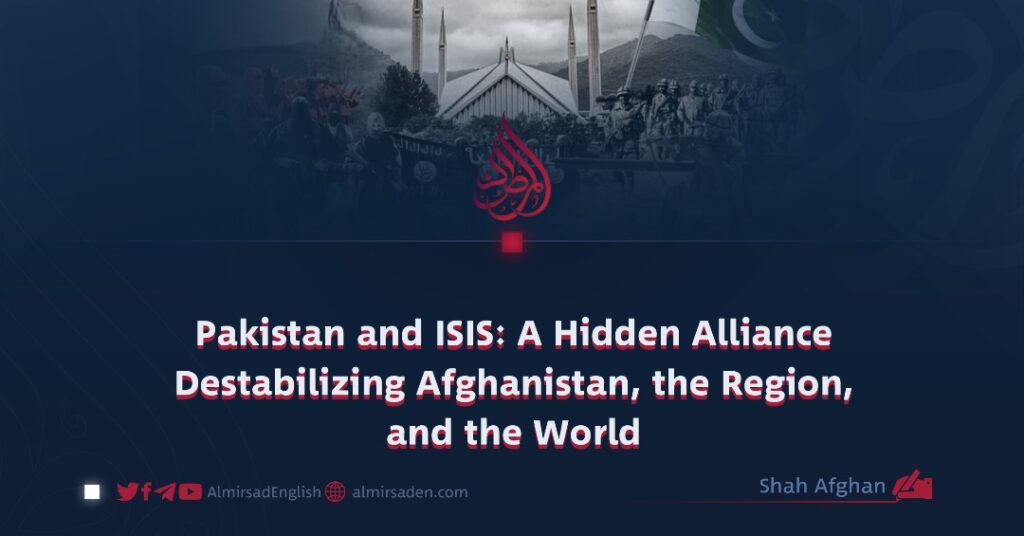By Shah Afghan
After the Islamic Emirate of Afghanistan (IEA) returned to power, its forces, as anticipated, dismantled ISIS networks across the country. From field operatives to senior commanders, members of the group were arrested, punished, or eliminated, and their organizational structure collapsed.
Yet, despite the collapse of their internal bases, sporadic attacks continued. These incidents raised a pressing question: if ISIS had been uprooted inside Afghanistan, then who is supplying it with manpower, funds, and logistical support? Who is sending fighters into Afghanistan?
At first, answering this question was difficult. But as captured ISIS members began to speak under interrogation, a concealed truth slowly surfaced, a truth with consequences far beyond Afghanistan.
According to the confessions of arrested ISIS members, the group’s fighters were not only being dispatched into Afghanistan from Pakistan, but were also receiving training, supplies, and directives under the supervision of elements within the Pakistani military and the ISI prior to crossing into Afghanistan.
The claim of Pakistan’s cooperation with ISIS was initially mentioned only in media circles. However, when Pakistan continued these activities, the IEA publicly accused it of aiding and financing ISIS operations against Afghanistan and neighboring states. Pakistani officials denied the charge, but the facts soon rendered their denials meaningless.
Not long ago, when Pakistan launched an incursion into Afghan territory, it was met with firm resistance from the IEA’s forces. Shocked by the backlash, Pakistan requested a ceasefire. This led to negotiations, the first round held in Qatar, the second in Turkey.
However, beyond the ceasefire talks, one issue stood at the center: the IEA demanded that Pakistan halt its support and funding for ISIS. Pakistan refused, openly and without shame.
This refusal raises an obvious question: if ISIS has no presence in Pakistan, if it is not trained under ISI oversight, then why refuse to end support for a group Pakistan claims not to be involved with? Why not simply deny its presence in Pakistan?
Additional evidence continues to surface. Several ISIS operatives have been killed in Pakistan under unclear circumstances. One example is Nusrat, son of Amir Mohammad, known as Abu Zar. He was killed in Peshawar. He had helped plan attacks in Kabul and surrounding provinces in 2022 and 2023, and he oversaw a key ISIS operational center in Pakistan known as “Pahlawan.”
In the end, the pattern is unmistakable. ISIS’s primary refuge, training ground, and logistical lifeline lie in Pakistan. Islamabad uses this group as a strategic tool to sow disorder in Afghanistan, to pressure the IEA politically, and to maintain leverage in the region. This is not merely a threat to Afghanistan’s security; it endangers the stability and peace of the broader region and, ultimately, the world.
